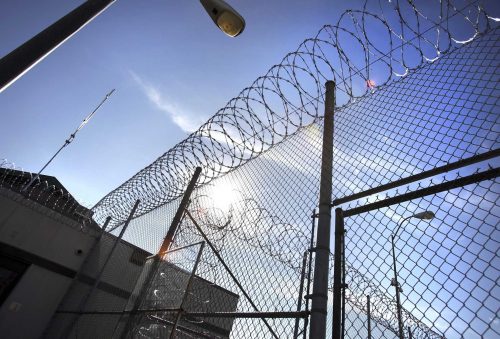

By Leslie Acevedo
ALBANY, NY – In an opinion piece in “The Crime Report” last week, Marc Levin argued longer sentences and more prisons are apparently not reducing crime in southern states.
Levin, chief policy counsel for Council on Criminal Justice, wrote that despite “57 percent of Americans say addressing crime is a top priority,” policymakers in southern states focus on expanding prisons as opposed to preventing crime and reducing recidivism.
Levin reports, “While (Tennessee, Texas, Alabama, South Carolina and Arkansas) have reduced their incarceration rates over the last couple of decades in alignment with the national trend, they still maintain both incarceration rates and violent crime rates that are above the national averages and are struggling to staff existing lockups.”
Levin notes that “lawmakers should think twice before returning to 1990s-era policies,” because lawmakers in southern states are considering policies contradicting what research has shown.
Despite dozens of states adopting rewards for good work time or earned time to people behind bars for exemplary behavior and completing programs, “a new proposal from Tennessee lawmakers seeks to remove this authority from wardens and sheriffs, creating a new bureaucracy that would be required to approve every such request for both prisons and local jails,” costing taxpayers millions of dollars, says Levin.
Tennessee lawmakers are considering expanding the state’s three-strikes law, estimating a one-time cost of $384 million, according to Levin, and South Carolina is considering a proposal to increase prison terms for individuals illegally carrying guns.
Texas lawmakers are “considering legislation that would create a mandatory minimum of 10 years in prison for certain offenses if a gun is used,” despite research showing incarcerating juveniles in adult prisons does not reduce recidivism and increases the risks of abuse, said Levin.
Policies have been approved to build more prisons and make sentences longer, but there is still time for lawmakers to take steps in the next few years to calibrate their approach, notes Levin, adding “provisions in these bills propose to increase time behind bars based solely on the specific type of offense.”
Levin wrote “another problem is that some provisions such as those at issue in Texas and Arkansas that would restrict parole eligibility could mean that those who would have previously been supervised by parole officers will now be released without any accountability or reentry services.”
“(There is a) problem of finding and retaining the correctional officers and other staff needed to incarcerate more individuals,” said Levin.
Levin suggested that “lawmakers should also focus on the quality of time served, not just the amount of it, by bolstering effective treatment programs behind bars and reentry initiatives. Lawmakers in southern states and beyond should use a scalpel rather than an anvil to ensure they are cracking down on crime without getting tough on taxpayers.”